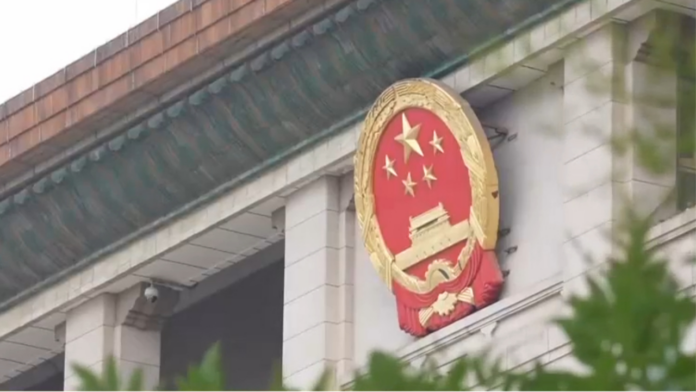
On September 1, 2023, the Standing Committee of the National People’s Congress of China passed the long-awaited “Foreign State Immunity Law”, which will take effect on January 1, 2024. This legislation is a major development in China’s sovereign immunity issue and will have a profound impact on clients, legal practitioners, and researchers.
China has never legislated on foreign state and property immunity in the past and has dealt with this issue by diplomatic practice for many years.

China’s diplomatic practice has previously adopted the position of absolute immunity, that is, all state actions and property of a country or actions made on behalf of the country (or property held by it) are not subject to the jurisdiction of foreign courts unless the country explicitly agrees to abandon its state Immunity.
The absolute immunity position has gradually become out of step with the increasing internationalization of the Chinese economy and the legislative practices of other countries, but this will all change on January 1, 2024.
The Law takes a position on limiting immunity
The Foreign State Immunities Law contains 23 articles, which can be divided into the following parts:
- Principle of immunity of foreign States and their property (Articles 1-3);
- Accept Chinese jurisdiction (Articles 4-6);
- Exceptions to the immunity of foreign states and their property (Articles 7-15);
- Special Court Procedural Matters (Articles 16-19); and
- Other provisions (Articles 20-23).
The Foreign State Immunity Law confirms the general principle that foreign countries and their property enjoy jurisdictional immunity in Chinese courts, except as otherwise provided in the Foreign State Immunity Law (Article 3). Exceptions are mainly divided into two categories: acceptance of court jurisdiction and immunity exceptions specified in the law, and these immunity exceptions have changed the “absolute immunity” principle previously adopted by the Chinese government.
Perhaps the most important and generally applicable exception to state immunity under the Foreign State Immunities Law is the “commercial activities” exception. Article 7 of the Foreign State Immunities Law stipulates:
Commercial activities between foreign countries and organizations or individuals from other countries, including the People’s Republic of China, occur within the territory of the People’s Republic of China, or although they occur outside the territory of the People’s Republic of China, they have a direct impact within the territory of the People’s Republic of China. The foreign country does not enjoy jurisdictional immunity in the courts of the People’s Republic of China for lawsuits arising from this business activity.
The term “commercial activities” as used in this Law refers to transactions, investments, loans, and other commercial activities related to goods or services that are not the exercise of sovereign power. When determining whether an act is a commercial activity, the courts of the People’s Republic of China should comprehensively consider the nature and purpose of the act.
There are several points worth noting in Article 7:
The “commercial activities” exception applies to transactions conducted by foreign states (as opposed to the People’s Republic of China) with non-state actors. Although there is no explicit provision in the Foreign State Immunity Act, transactions conducted between countries are not within the scope of the principle of state immunity.
Since the activities involved must be carried out within the territory of the People’s Republic of China or have a direct effect within the territory of the People’s Republic of China, Article 7 appears to impose jurisdictional conditions on the application of the “commercial activities” exception. The court may also establish jurisdiction on other grounds in civil proceedings, but Article 7 seems to narrow the scope of such grounds to two situations.
The broad definition of “commercial activities” enables Chinese courts to comprehensively consider the nature and purpose of relevant activities. Any conduct that is not an exercise of sovereign power may be a commercial activity.
The Foreign State Immunities Law also sets out the following exceptions to the immunity of foreign states and their property:
- Labor Contract;
- personal injury, property damage;
- Ownership, possession, and use of property;
- Matters relating to intellectual property rights; and
- Validity of the Arbitration Agreement.
The law continues to recognize a distinction between immunity from jurisdiction and immunity from execution.

Hong Kong’s special status
Regarding the matter of foreign state immunity, the Hong Kong Court of Final Appeal ruled in the case of Democratic Republic of the Congo v. FG Hemisphere Associates that on issues of constitutional and legal principles, Hong Kong cannot adopt a different principle of state immunity from the principle of state immunity adopted by the Chinese government. , that is, Hong Kong must abide by the principle of absolute state immunity adopted by the Chinese government.
Since the Foreign State Immunity Act has now shifted to the principle of restricting state immunity, applying the logic of the Congo v. Hemisphere case, Hong Kong courts must also make corresponding changes starting from January 1, 2024. The spokesperson of the National People’s Congress expressed the same view when accepting questions from reporters on September 1, 2023. It remains to be seen whether the Foreign State Immunities Law will be included in Annex III of the Basic Law as a national law directly applicable to Hong Kong.
In addition, the Hong Kong court believes that state-owned enterprises are independent entities different from the state. The principle of state immunity does not apply to state-owned enterprises, and the Foreign State Immunity Law will not affect the position of the Hong Kong courts on this matter.
China’s foreign policy
Foreign policy plays an important role in the Foreign State Immunities Law. Article 19 of the Foreign State Immunity Law stipulates that the Chinese Ministry of Foreign Affairs may provide opinions to the court on matters involving foreign affairs and major national interests.
Article 21 stipulates the principle of reciprocity. If the immunity treatment granted by a foreign country to China and its property is lower than that stipulated in the “Foreign State Immunity Law”, China will implement the principle of reciprocity.
Article 21 means that if the plaintiff files a lawsuit against Country A in a Chinese court, the legal and diplomatic practices of Country A, especially those targeting China, should also be considered.
The Foreign State Immunities Law will have a significant impact on state entities related to mainland China, Hong Kong, and Macau and commercial institutions that have dealings with state entities. Now is an appropriate time to review contractual provisions regarding state immunity and waiver of immunity, and to (re)consider dispute resolution strategies.
(Source: Fanda Partners, Xinhua)



